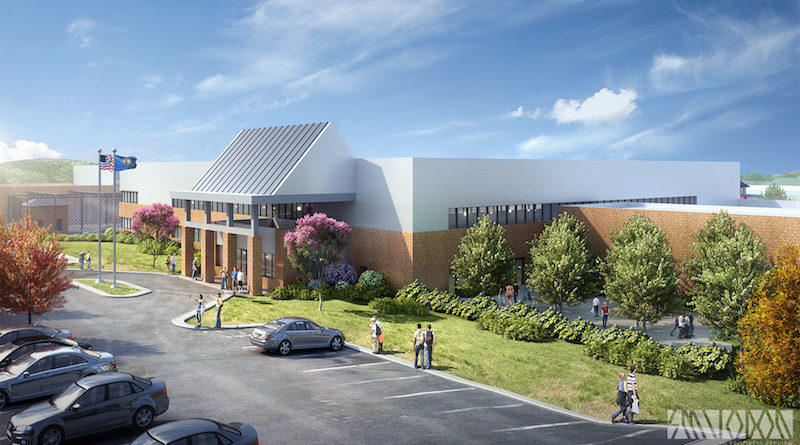Virginia Center for Behavioral Health Breaks Ground on Facility Expansion
By Aziza Jackson
BURKSVILLE, Va. — The Virginia Center for Behavioral Rehabilitation (VCBR) has broken new ground on an expansion project for their Burkesville facility.
HDR, an international design and architecture firm based in Omaha, Neb., signed on to design the expansion and renovation of the facility in 2013. The firm provided programming, planning, design, construction documents and construction-phase services for the project, and worked closely with construction company Balfour Beatty, ADTEK Engineering, Valley Engineering, GovSolutions and Stanton Fire Protection.
The forthcoming facility features expanded treatment facilities and a 258-bed housing expansion, to include 185,000 square feet of new construction and 50,000 square feet of renovation.
“As a firm, we aim to push boundaries to achieve greater outcomes. Partnering with The Virginia Department of Behavioral Health and connecting their goals with the HDR team’s expertise has encouraged innovative problem-solving that will be reflected in occupant outcomes,” said Jason Beshore, health principal at HDR. “We’re truly honored to have such strong partners in VCBR.”
HDR’s concepts and design goals were supported by an ongoing research study focused on the hypothesis that the architectural design of the VCBR expansion will be associated with improved outcomes for residents both while committed and after release.
Key programmatic components of the expansion include a large centralized Treatment Mall with an adjacent park-like garden, treatment, education, vocational, exercise and leisure activity spaces, and a housing expansion of 258 beds for special needs and transitional populations.
Beshore said construction began about two months ago, and he expects the first building, a transitional housing unit, to be completed in fall of 2019.
“The transitional housing unit is a 48-bed unit that’s designed like a multi-housing complex with a kitchen, dining room, and eight beds in each unit,” said Beshore.
Beshore said that the transitional housing unit at VCBR will serve as a place to teach residents life skills as they begin to transition back into the community where they will have more freedom to manage their own care. He said he expects the entire renovation project to be complete in early 2021.
“The HDR team has provided motivation, guidance, and expertise through all steps of achieving VCBR’s goal of designing a facility that supports our mission of providing recovery, opportunities, and support so that residents may safely return to the community,” said VCBR Facility Director Jason Wilson. “The partnership resulted in a facility that will improve clinical outcomes; fostering a therapeutic environment rather than merely providing space for services. The VCBR leadership team has been pleased to partner with such a dynamic team as HDR.”
VCBR opened in 2008, and provides treatment for adults deemed to be sexually violent predators. Residents are former Department of Corrections inmates who undergo intensive treatment aimed at reducing their risk of reoffending so that they can be returned to the community, where they will be closely supervised.
The project’s guiding principles include improvement in VCBR’s capabilities to treat residents via provision of a multi-tiered environment that allows for increasing responsibility and self-management as residents progress through the program.

